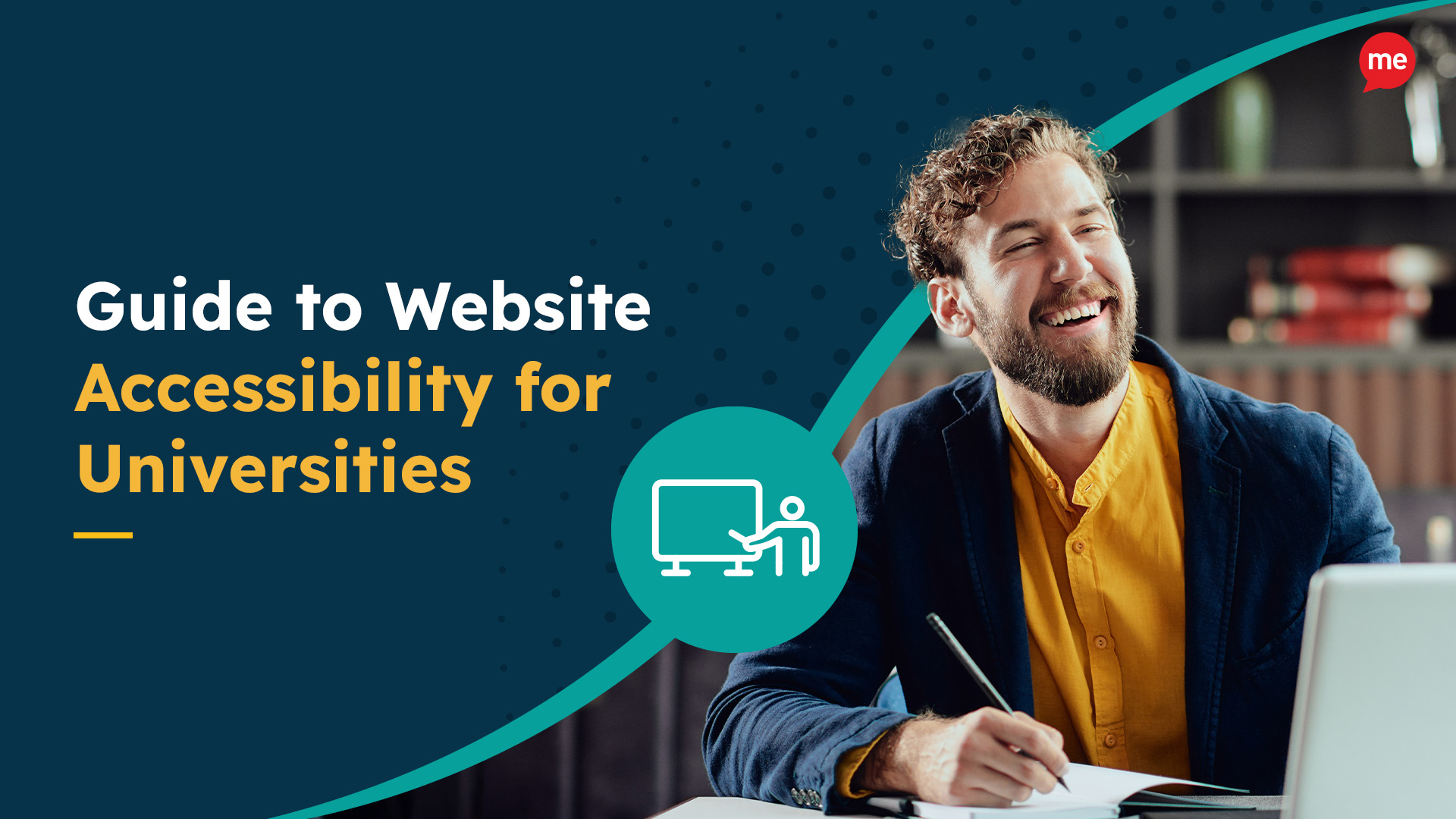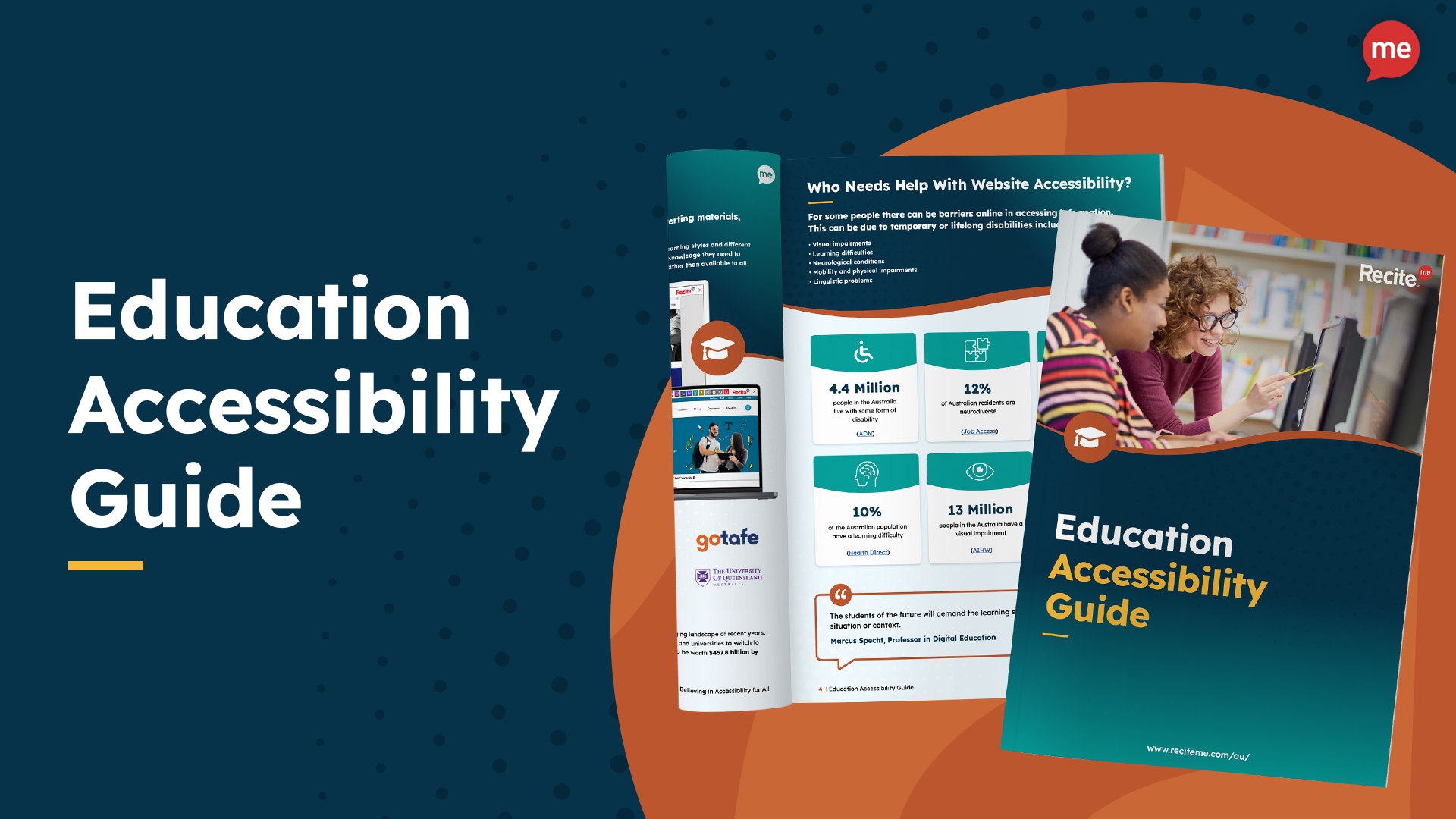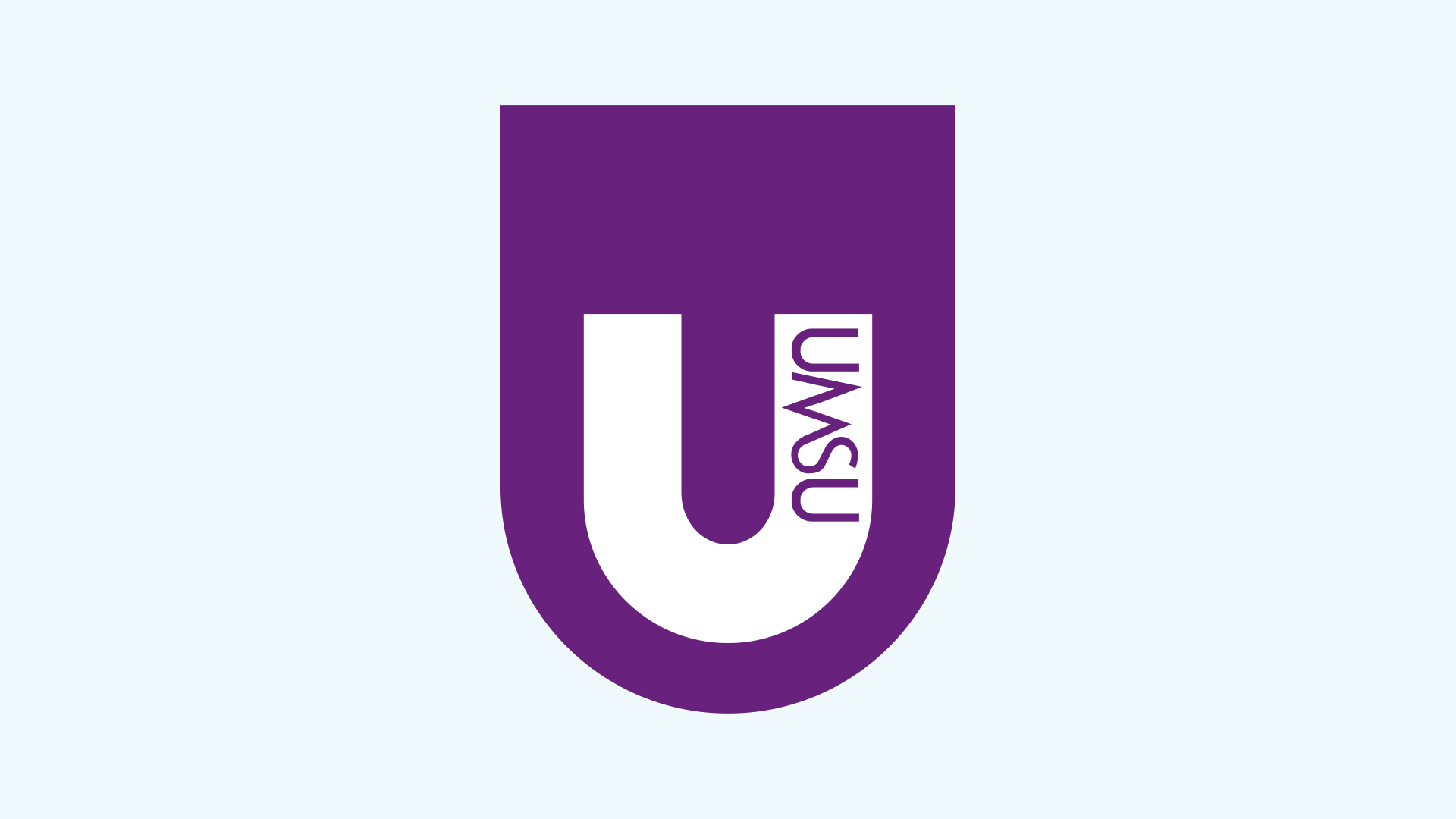In the post-COVID-19 economy, the youth workforce is likely to be the sector most called upon to contribute to recovery efforts. To do so, they will need the necessary knowledge and skills to address current issues and confront future disruptions.
This is a problem.
With many degree programs moving online, some students are disadvantaged because information on websites is not accessible.
On an individual level, this means some students fall behind in their studies or are unable to complete courses. On a broader scale, general lower academic achievement translates into a longer-term economic cost because the workforce is less qualified.
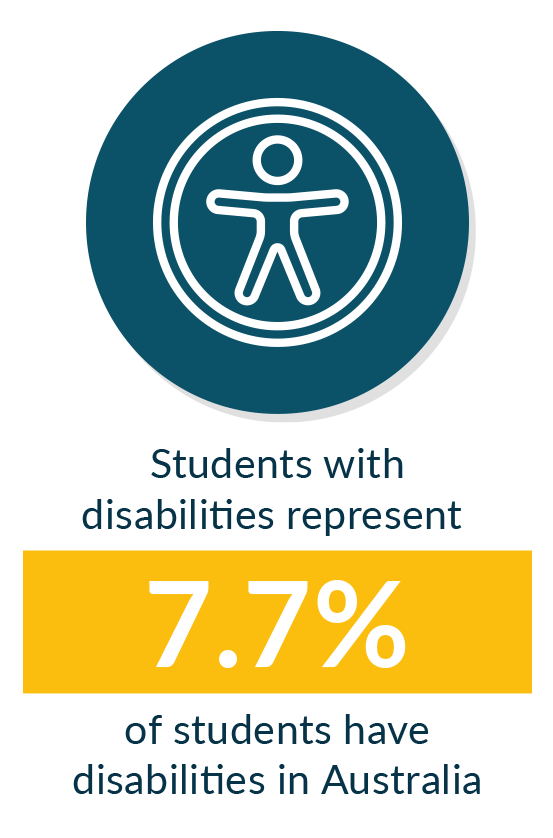 Accessibility Barriers
Accessibility Barriers
Students who face the most significant accessibility barriers online include those who have visual deficits, physical disabilities, and learning difficulties:
- Students with disabilities represent 7.7% of all domestic undergraduates in Australia. That’s over 61,000 people.
- 7.4% of Australian university students with a disability report have learning difficulties such as dyslexia, dyscalculia, and ADHD.
- 5.5% of Australian university students with a disability have significant visual deficits.
Sources: Adcet, University of Melbourne
Language Barriers
Literacy and language issues, including speaking and reading English as a second language, can also contribute to web accessibility barriers.
Australia has more international students than any other country worldwide. Numbers for the last couple of years are skewed by students returning to their home countries during the COVID-19 pandemic. However, statistics from University Rankings show that international students typically account for around 21% of undergraduates in Australia, while the international average is only 6%.
Many Australian universities have reported significant losses during the COVID-19 pandemic due to the drop in international student numbers. So prioritising websites for multi-lingual access should be a top priority.
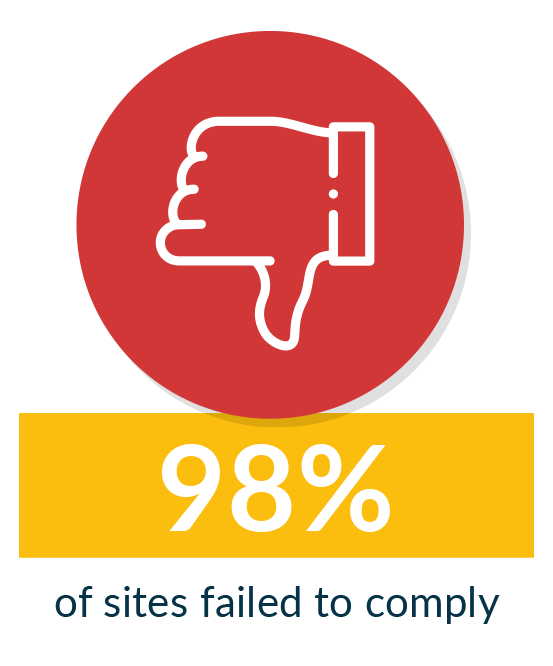 Australian University Websites: Current Status
Australian University Websites: Current Status
As public-facing organisations, universities should comply with the World Content Accessibility Guidelines (WCAG) Level AA, under anti-discrimination provisions of the Disability Discrimination Act.
However, a recent study by Ariadne Web Magazine discovered that 98% of sites failed to comply. This indicates the vast majority of Australian universities are not doing enough to provide equal access to online resources, and that people with disabilities will likely face significant barriers as a result.
The Future of University Education
Whether due to continued social distancing regulations or simply because universities find it a simpler and more efficient way to teach, remote and distance learning courses look to be here to stay.
An American study by EducationData.org determined that in 2020, 43% of academic institutions offering higher-level education courses invested in additional resources to aid remote instruction. Yet, 76% of institutions still believe that online learning platforms need to be more accessible to students. With a much higher percentage of overseas students and the current level of compliance to WCAG, it is feasible to assume that the equivocal percentages for Australian universities would be similar – if not even higher.
Although open-source online learning platforms like Moodle enable education providers to create personalised learning environments for their students, no online learning portal can accommodate unilaterally for the broad spectrum of barriers that students face. That’s where assistive technology can help.
Using Assistive Software to Promote Inclusion
At Recite Me, we are firm believers that every stage of education should be inclusive. Our unique assistive toolbar is an accessibility solution that allows students to customise a website in the way that works best for them. Our technology compensates for numerous access barriers, including:
- Visual impairments
- Deafblindness
- Colour blindness
- Dyslexia
- Hyperlexia
- Dyspraxia
- Autism
- ADHD
- Speaking English as a second language
- Epilepsy
- Mobility and physical impairments
How Does It Work?
The Recite Me toolbar comprises several accessibility features that can either be used individually or combined to make multiple adjustments for ultimate ease of use. Users can:
- Personalise font size, type, and colour options to make each web page easier to read.
- Utilise the mask screen tool, which isolates parts of the page to help with focus.
- Use the ruler tool to make reading easier.
- Download content as an audio file as an alternative to reading.
- Convert page content into over 100 different on-screen languages.
- Have the page read aloud in a choice of 35 different languages.
- Customise PDF documents and have them read aloud or translated.
Over the past 12-months, educational organizations providing Recite Me accessibility and language tools have supported over 600,000 students online to access barrier-free resources on 3.6 million web pages. On average each user is viewing over 6 pages per visit with the toolbar active. This is well over the internet session average of 2.8 pages.
The Benefits: A Case Study
The University of London was one of the first educational institutions to embed the Recite Me toolbar onto their website. In just six months, engagement and interaction with the toolbar was significant:
- 43,000 toolbar launches
- 131,500 features used
- 31,000 pieces of content translated
- 97,000 pieces of content read aloud
- 11,000 styling customisations
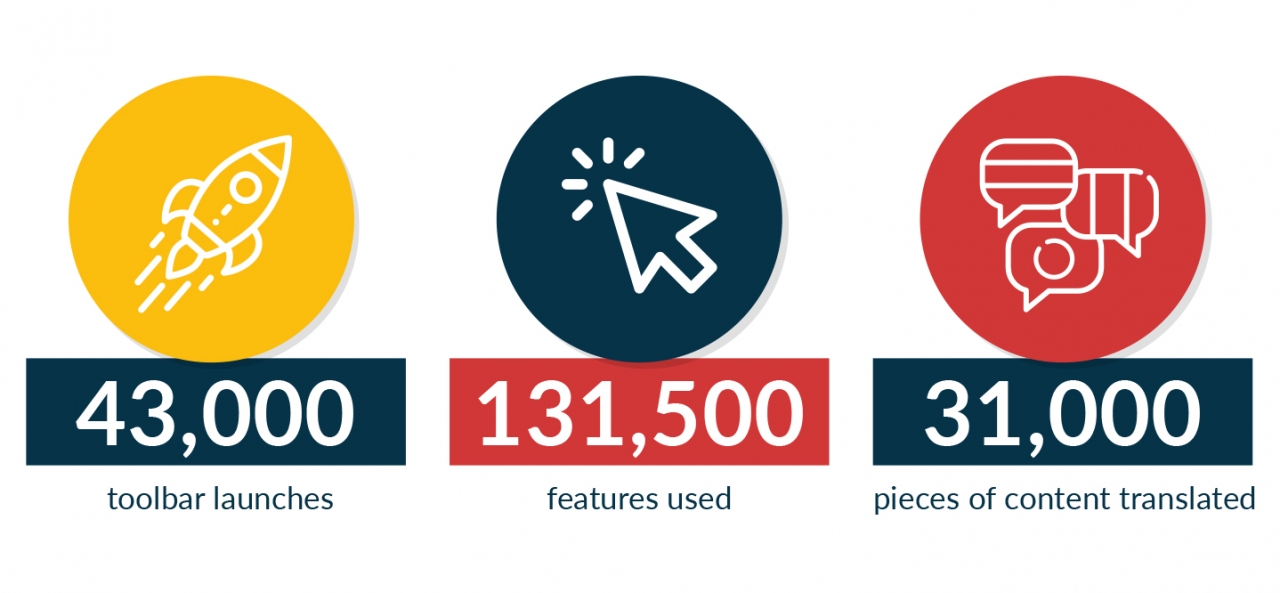
A Message to Educators
We encourage all universities to ensure online classes and study materials are inclusive so that course content is as easy to access and digest as it would be in a classroom or lecture hall environment.
If you’d like more information on how your organisation can become more inclusive by utilising Recite Me assistive technology, please contact our team or book a real-time demonstration of our toolbar. Together, we can make a difference and provide all Australian university students with equal education opportunities online. Furthermore, be sure to check out our WCAG compliant accessibility checker.
